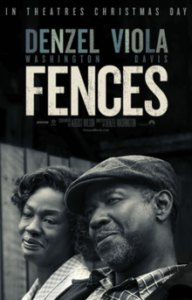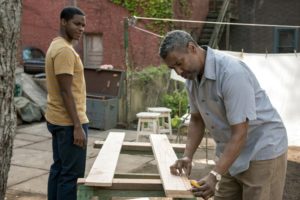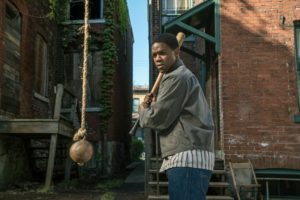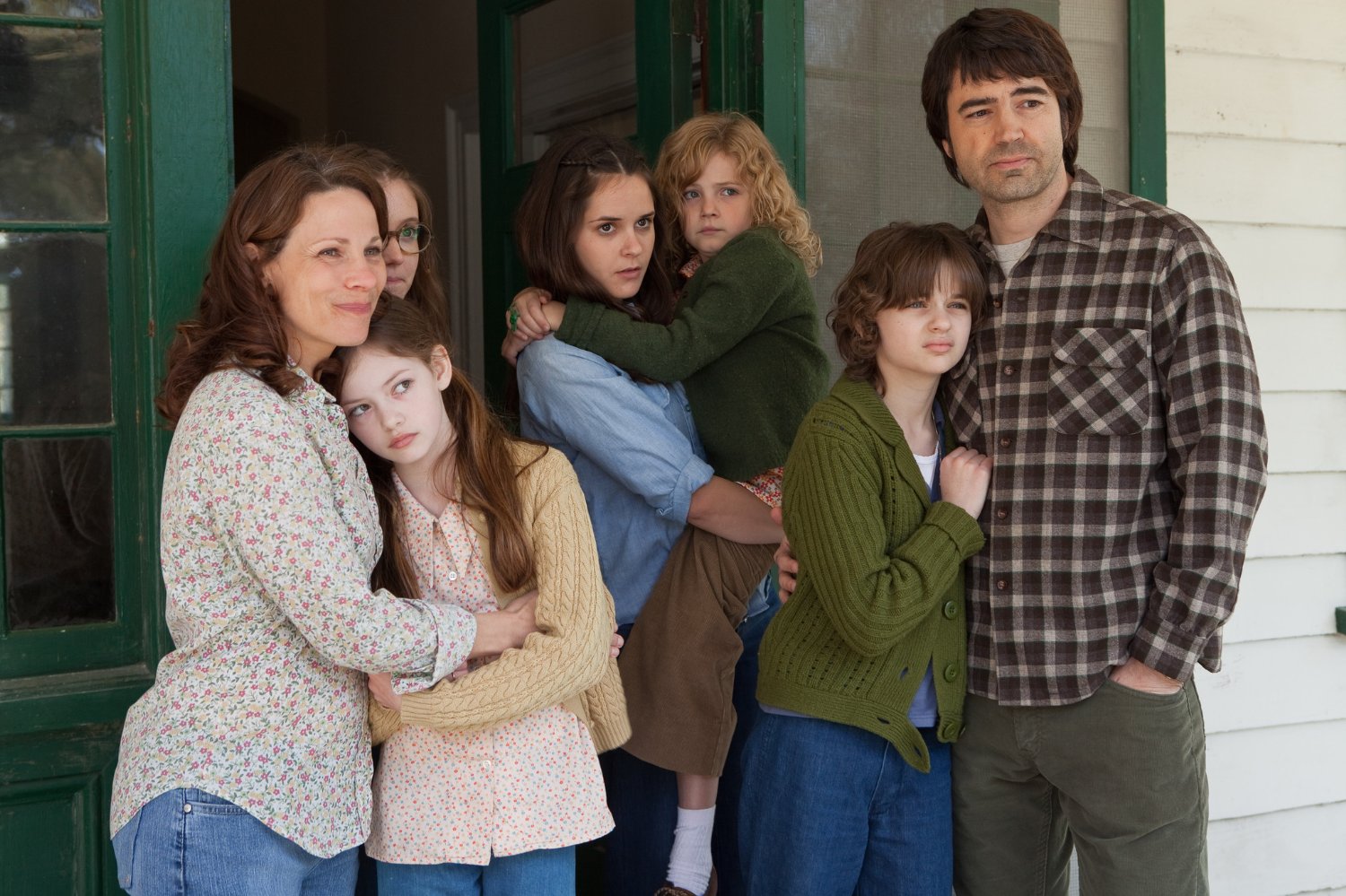 “Some people build fences to keep people out…and other people build fences to keep people in. Rose wants to hold on to you all. She loves you.” – (2.1.32) of August Wilson’s Fences
“Some people build fences to keep people out…and other people build fences to keep people in. Rose wants to hold on to you all. She loves you.” – (2.1.32) of August Wilson’s Fences
I had no familiarity with August Wilson or his “Pittsburgh Cycle” series of plays going into this film. All I knew is Denzel Washington Is The Greatest Actor of All Time Period and Viola Davis might be the best actress of my generation. This is a film that had to be seen by me on principle. One does not just skip a film combining that level of talent.
Dialogue is king within a play. Film adaptations of plays, however, either fall into the category of basically just transferring the play onto the screen with higher production value—where the dialogue is front and center as it is in the play—or the director tries to evolve the play into a something more cinematic—usually at the cost of much of the dialogue of the play—and often fails in its attempt. Denzel Washington’s adaptation of Fences fits squarely within the former.
The way in which the film’s use of dialogue possesses the movement of the characters from the backyard to the house and onto the streets of Pittsburgh is something I don’t see often in films—with the exception, maybe, of Aaron Sorkin walking and talking scenes. There is a flow to the film with few moments of palpable cuts in between that feels like a play placed in the world of actuality and not plywood scenes and props. Outside of some of the best acting on screen this year, it is this movement of the film that may have been the most mesmerizing aspect.
 As W. Kamau Bell and Kevin Avery have stated on the podcast I mentioned above, Denzel is the greatest actor of all time, period, but he’s not necessarily the greatest director of all time, period. With his only two credits before Fences being Antwone Fisher and The Great Debaters, he turned in sturdy direction but nothing that would keep someone on the edge of their seat waiting for each new film directed by him. While I don’t think Fences is perfect in execution, I do think Denzel found a groove with this film. His un-showy handling of key dialogue and monologues by the characters could have escalated into excessive dramatics very easily, but Denzel reels it back in such a way that we are simply observers of plain words, sharp as a razor, on the verge of cutting other characters down. Once again, the dramatics are left to the silences and the looks between the words. Denzel delivered a steady, well-paced, journeyman-level direction and because of it he could allow the characters and acting to carry the weight. And they did.
As W. Kamau Bell and Kevin Avery have stated on the podcast I mentioned above, Denzel is the greatest actor of all time, period, but he’s not necessarily the greatest director of all time, period. With his only two credits before Fences being Antwone Fisher and The Great Debaters, he turned in sturdy direction but nothing that would keep someone on the edge of their seat waiting for each new film directed by him. While I don’t think Fences is perfect in execution, I do think Denzel found a groove with this film. His un-showy handling of key dialogue and monologues by the characters could have escalated into excessive dramatics very easily, but Denzel reels it back in such a way that we are simply observers of plain words, sharp as a razor, on the verge of cutting other characters down. Once again, the dramatics are left to the silences and the looks between the words. Denzel delivered a steady, well-paced, journeyman-level direction and because of it he could allow the characters and acting to carry the weight. And they did.
The most profound moments in the film deal with the use of religious elements that seem to infuse every film that Denzel Washington lays a finger on. While Denzel’s Troy speaks of fighting and tumbling with the grim reaper and the devil during punctuated moments of dialogue, it is Viola’s Rose who grounds the story’s narrative in a true religious affection; one that finds its culmination in recognizing her inability to control Troy’s actions or the direction of her life. She is baptized in the hope that God will deliver her from the pain and turmoil that, per the narrative, largely comes from the decisions that Troy makes, not to mention the general racism and patriarchy that pervades this world. However Troy’s understanding of religion is more of a mythologized rendering of very material challenges that he faces in his day to day life.
 The fences that the title speaks of and the quote above speaks to are those boundaries humans place in their lives to separate ourselves from others under the guise of “protection” or “security” or the perimeters we create to keep relationships and people close often ending with a subtle form of relational suffocation. Neither is conducive to life and love. Troy is keeping others out, but the seals of his boundaries break amid his choices. While Rose finds herself isolating her relationships by not letting go of those who do harm to her and others she loves, namely Troy. There is brokenness throughout the runtime of this film, both individual and systemic. Troy’s disillusionment stems of systemic racism against black people that probably caused him to not profit from and develop his baseball career as well as the challenging relationship he has to his white bosses as a trash collector. These struggles breed responses that lead to the continual breakdown of his relationships to Rose and his sons, Cory and Lyons.
The fences that the title speaks of and the quote above speaks to are those boundaries humans place in their lives to separate ourselves from others under the guise of “protection” or “security” or the perimeters we create to keep relationships and people close often ending with a subtle form of relational suffocation. Neither is conducive to life and love. Troy is keeping others out, but the seals of his boundaries break amid his choices. While Rose finds herself isolating her relationships by not letting go of those who do harm to her and others she loves, namely Troy. There is brokenness throughout the runtime of this film, both individual and systemic. Troy’s disillusionment stems of systemic racism against black people that probably caused him to not profit from and develop his baseball career as well as the challenging relationship he has to his white bosses as a trash collector. These struggles breed responses that lead to the continual breakdown of his relationships to Rose and his sons, Cory and Lyons.
Before the final scenes of the film when grace comes raging through with the thin, whispering blast of a trumpet, that brokenness has its day. Rose separates herself from Troy, Cory confronts and separates himself from his father and even Troy’s friend, Bono, is distanced from him by the end of the film. It seems Troy’s tussle with the devil/death finds him losing and, yet, there is a love that transcends the “straights and crookeds” of this world. A love that can embrace and redeem those who do not deserve mercy. The final moments between Rose and Cory may be some of the most weighty moments of divine intervention I’ve seen in quite a while. It is these moments of humanity and transcendence that elevate this film to the status of a must-see film for 2016.


